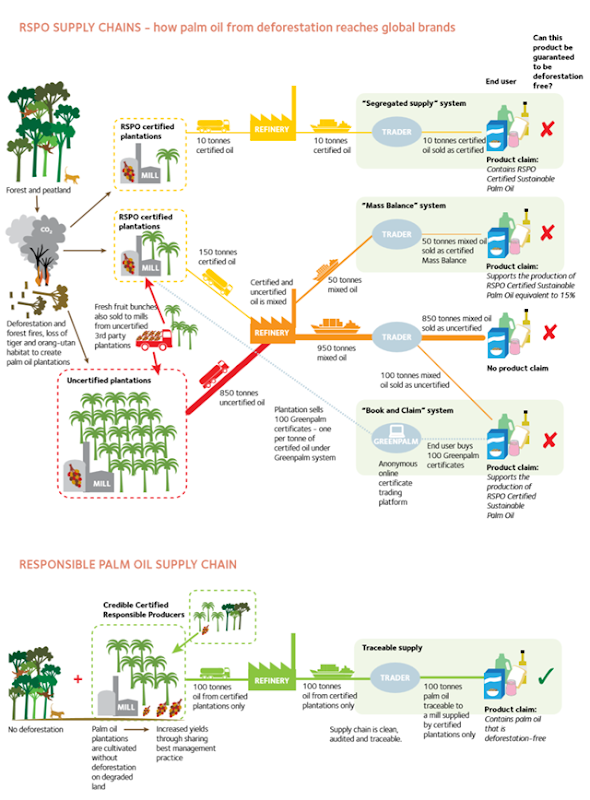How palm oil from illegal deforestation reaches global brands
3 September 2013 (Greenpeace) – The Roundtable on Sustainable Palm Oil (RSPO) was formed in 2004 to promote the use of sustainable palm oil through credible global standards and engagement of stakeholders. It is a voluntary association, consisting of palm oil producers, processors and traders, consumer goods manufacturers, retailers, banks and investors as well as some environmental and social non-governmental organisations. RSPO members account for around 40% of global palm oil production. The RSPO wants its members to be industry leaders in sustainability. However, its current standards leave its members free to destroy forests. Our report shows that RSPO certification is not protecting international household brands from the risk that the palm oil they use is tainted with deforestation. RSPO standards are not prohibiting deforestation and peatland destruction. Mapping analysis shows significant deforestation in concessions currently owned by RSPO members, and a significant share of the fires that covered Southeast Asia in haze this June were in RSPO member concessions. The RSPO recently reviewed its Principles and Criteria, but failed to address crucial questions of deforestation and greenhouse gas emissions, leading to criticism both from consumer companies and NGOs. Companies seeking deforestation-free palm oil now need to go beyond RSPO if they want to break the link between palm oil and deforestation. Certifying Destruction [pdf]
